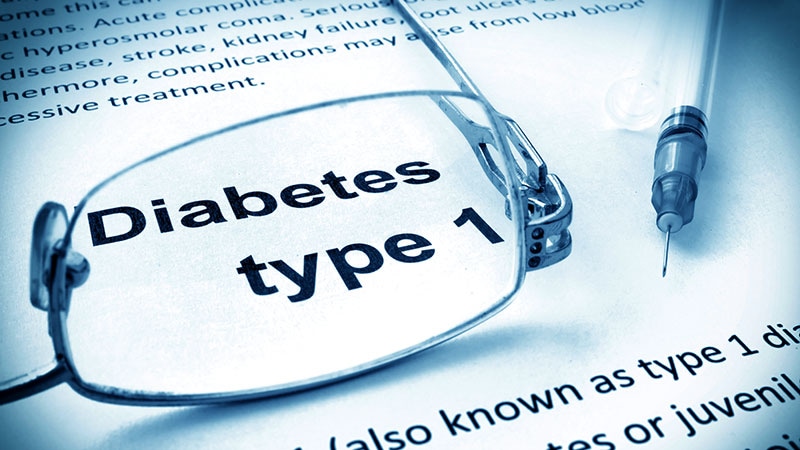Crucial Insights for Healthcare Providers on Effectively Managing Type 1 Diabetes
Keskeiset käsitteet
Healthcare providers must have a comprehensive understanding of the unique needs and challenges faced by individuals with type 1 diabetes to ensure proper care and prevent life-threatening complications.
Tiivistelmä
The article highlights the critical knowledge gaps and common misconceptions about type 1 diabetes among healthcare providers, which can lead to serious adverse consequences for patients. It emphasizes the importance of understanding the following key points:
Individuals with type 1 diabetes require insulin 24/7, and withholding insulin can result in diabetic ketoacidosis and death. Providers should listen to patients and adjust insulin doses appropriately, as the needs can vary significantly from those with type 2 diabetes.
Fasting poses a significant risk of hypoglycemia for those with type 1 diabetes, and should be avoided unless absolutely necessary. If fasting is required, the need for insulin adjustment should be discussed with the patient or their diabetes provider.
Steroid administration in individuals with type 1 diabetes can cause a significant spike in blood sugar levels, requiring careful monitoring and insulin dose adjustments.
Procedures and imaging tests can disrupt diabetes management, and providers should be aware of the impact on insulin delivery devices and the need for advance planning to ensure continuity of care.
Pregnant women with pre-existing type 1 diabetes should not be subjected to unnecessary glucose tolerance tests, as they already have the condition.
The article emphasizes the importance of healthcare providers collaborating with patients to provide effective, personalized care for individuals living with type 1 diabetes.
What Every Provider Needs to Know About Type 1 Diabetes
Tilastot
"Never, ever withhold insulin from a person with type 1 diabetes, for any reason. Even when not eating — or when vomiting — we still need basal (background) insulin, either via long-acting analog or a pump infusion."
"Fasting poses a risk for hypoglycemia in people with type 1 diabetes, even when using state-of-the-art technology. Fasting should not be required unless absolutely necessary, especially for routine lab tests."
"If it's absolutely necessary to give steroids to a person with type 1 diabetes for any reason, plans must be made in advance for the inevitable glucose spike."
Lainaukset
"Patients continue taking their diabetes medication but don't eat anything, resulting in low blood sugar levels that cause them to have a hypoglycemic event while driving to or from the lab, putting themselves and others at risk."
"True story: When I had my second carpal tunnel surgery in July 2019, my hand surgeon wisely scheduled me for his first procedure in the morning to minimize the length of time I'd have to fast. (He has type 1 diabetes himself, which helped.)"
"In general, surprises that affect blood sugar are a bad idea."
Tärkeimmät oivallukset
by Miriam E. Tu... klo www.medscape.com 08-16-2024
https://www.medscape.com/viewarticle/what-every-provider-needs-know-about-type-1-diabetes-2024a1000f2f
Syvällisempiä Kysymyksiä
How can healthcare providers effectively collaborate with patients to develop personalized care plans for individuals with type 1 diabetes?
Healthcare providers can effectively collaborate with patients by fostering open communication and mutual respect. It is crucial for providers to listen to the patient's experiences, concerns, and preferences regarding their diabetes management. By involving patients in decision-making processes, providers can tailor care plans to meet the individual needs and goals of each person with type 1 diabetes. This collaborative approach can lead to increased patient engagement, adherence to treatment plans, and overall better health outcomes.
What are the potential long-term consequences of healthcare providers' lack of understanding about the unique management needs of type 1 diabetes, and how can this be addressed?
The potential long-term consequences of healthcare providers' lack of understanding about the unique management needs of type 1 diabetes include mismanagement of insulin therapy, increased risk of hypoglycemia or hyperglycemia, development of complications such as diabetic ketoacidosis, and even premature death in severe cases. To address this issue, healthcare providers need to undergo comprehensive training on type 1 diabetes, including the differences between type 1 and type 2 diabetes, insulin requirements, and the importance of individualized care plans. Continuous education and awareness programs can help improve providers' knowledge and competency in managing type 1 diabetes effectively.
What innovative technologies or approaches could be implemented to improve the coordination of care and communication between healthcare providers and patients with type 1 diabetes?
Innovative technologies such as telemedicine, remote monitoring devices, and mobile health applications can be implemented to improve the coordination of care and communication between healthcare providers and patients with type 1 diabetes. Telemedicine allows for virtual consultations, which can enhance access to care, especially for patients in remote areas. Remote monitoring devices, such as continuous glucose monitors (CGMs) and insulin pumps, enable real-time data sharing between patients and providers, facilitating proactive adjustments to treatment plans. Mobile health applications can help patients track their blood sugar levels, medication adherence, and lifestyle factors, while also enabling secure communication with their healthcare team. By leveraging these technologies, healthcare providers can enhance the quality of care, promote patient engagement, and optimize outcomes for individuals with type 1 diabetes.
0
